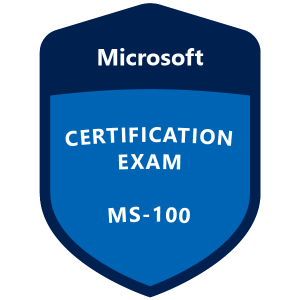
[ad_1]
Microsoft has released Security Updates (SUs) for vulnerabilities found in:
- Exchange Server 2013
- Exchange Server 2016
- Exchange Server 2019
SUs are available in a self-extracting auto-elevating .exe package, as well as the original update packages (.msp files), which can be downloaded from the Microsoft Update Catalog.
SUs are available for the following specific versions of Exchange Server:
The January 2023 SUs address vulnerabilities responsibly reported to Microsoft by security partners and found through Microsoft’s internal processes. Although we are not aware of any active exploits in the wild, our recommendation is to immediately install these updates to protect your environment.
These vulnerabilities affect Exchange Server. Exchange Online customers are already protected from the vulnerabilities addressed in these SUs and do not need to take any action other than updating Exchange servers in their environment.
More details about specific CVEs can be found in the Security Update Guide (filter on Exchange Server under Product Family).
Defense-in-depth: Enable Certificate Signing of PowerShell Serialization Payload
Serialization is the process of converting the state of an object into a form (stream of bytes) that can be persisted or transmitted to memory, a database, or a file. PowerShell, for example, uses serialization (and its counterpart deserialization) when passing objects between sessions. To defend Exchange servers against attacks on serialized data we’ve added certificate-based signing of PowerShell serialization payloads in the January 2023 SUs. In the first stage of rollout, this new feature must be manually enabled by an Exchange Server admin due to feature dependencies. This article details the steps to enable certificate-based signing of serialization data in Exchange Server. We have also released a script you can use to validate/create the required auth certificate in your organization or you can do it manually.
Update installation
The following update paths are available:
Known issues with this release
- Once the update is installed on an Exchange Server 2016 or 2019, web page previews for URLs shared in OWA will not be rendered properly. We will resolve this in a future update.
FAQs
When should we enable the new certificate signing of PowerShell serialization payload feature?
This feature should be enabled only after you have updated all your Exchange Servers to the January 2023 (or newer) SU. Enabling the feature before all servers are updated might lead to failures and errors when managing your organization.
Why do we need to enable the new certificate signing manually? Why does Microsoft not enable the feature automatically?
Our intention is to enable certificate signing of PowerShell serialization payload by default in a future update. The feature relies on a valid auth certificate being present in the organization, so we wanted to give admins a chance to validate their certificate before enabling a feature that depends on it (certificate issues could lead to unexpected results and errors if the feature was enabled by default.) We have released a script you can use to validate / create this certificate.
Our organization is in Hybrid mode with Exchange Online. Do we need to do anything?
Exchange Online is already protected, but this SU needs to be installed on your Exchange servers, even if they are used only for management purposes. If you change the auth certificate after installing the January 2023 SU, you should re-run the Hybrid Configuration Wizard.
The last SU that we installed is a few months old. Do we need to install all SUs in order, to install the latest one?
SUs are cumulative. If you are running a CU supported by the SU, you do not need to install all SUs in sequential order; simply install the latest SU. Please see this blog post for more information.
This post might receive future updates; they will be listed here (if available).
The Exchange Server Team
Source link





